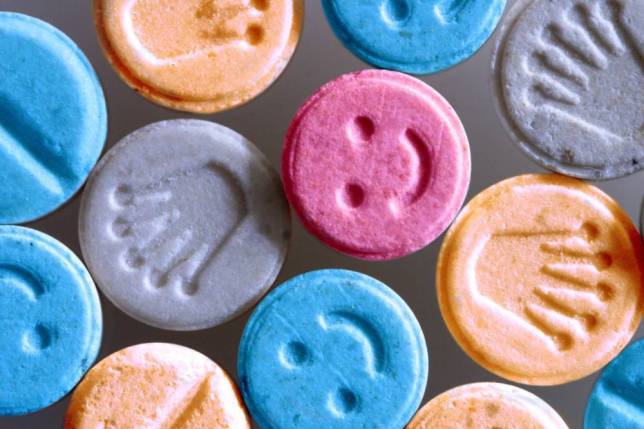MDMA, commonly called “Ecstacy”, or “Molly”, is an illegal drug that falls into the classification of stimulant hallucinogens. Popularized in the 90’s by its use at all night dance parties, or “raves”, MDMA is most commonly used as a club drug, though its use has expanded in recent history.
MDMA is characterized by its effects which include increased energy, pleasure, emotional warmth, and distorted sensory and time perception. Users who take MDMA generally do so by swallowing a capsule or pill, but it can also be dissolved in liquid, or snorted as a powder. The term “Molly” comes from the slang for molecular, which is meant to indicate that the drug was pure, though especially in recent years, ecstasy has been known to contain a vast variety of other chemicals used to “cut” the drug, such as cathinones, or “bath salts”. As it is generally taken in a party atmosphere, MDMA is commonly used together with alcohol and cannabis to increase intoxication.
As it is generally taken in a party atmosphere, MDMA is commonly used together with alcohol and cannabis to increase intoxication.
MDMA affects the brain by releasing dopamine, norepinephrine and serotonin. Dopamine “produces increased energy/activity and acts in the reward system to reinforce behaviors” (DrugFacts: MDMA). Serotonin “affects mood, appetite, sleep, and other functions. It also triggers hormones that affect sexual arousal and trust. The release of large amounts of serotonin likely causes the emotional closeness, elevated mood, and empathy felt by those who use MDMA.” (DrugFacts: MDMA). Norepinephrine “increases heart rate and blood pressure, which are particularly risky for people with heart and blood vessel problems.” (DrugFacts: MDMA). The combination of these chemicals being released in the brain causes an intense euphoria which makes the drug very appealing to many people, particularly those with addictive tendencies.
Other side effects of taking MDMA include nausea, muscle cramping, involuntary teeth clenching, blurred vision, chills, and sweating. The effects of a single dose of pure MDMA generally last from three to six hours, though it is not uncommon for users to take a second dose to extend the effects.
Liver, kidney, and heart failure have been known to happen, and in rare cases, death can result.
Extended use of the drug can cause several problems in the human body including depression, sleep problems, anxiety, lack of appetite, and insomnia, among other problems, and prolonged use of MDMA can cause a dependance on it. Withdrawal symptoms can result from stopping use of the drug after a long period of daily use which is known by the characteristics which include loss of appetite, fatigue, depression, and trouble concentrating. MDMA disrupts the body’s ability to control its own temperature, which can cause a spike in body heat, making it sometimes dangerous, especially in a crowded setting such as a rave or concert. Liver, kidney, and heart failure have been known to happen, and in rare cases, death can result.
People who use MDMA run the risk of developing what is called serotonin syndrome upon cessation of use. Serotonin syndrome is a condition that occurs when the brain is saturated by increased levels of serotonin. “Serotonin syndrome symptoms usually occur within several hours of taking a new drug or increasing the dose of a drug you’re already taking.” (Serotonin Syndrome – Symptoms and Causes).
MDMA is an illegal, dangerous drug, and it is important for you or your loved one to get help immediately if you have a problem with MDMA. Reach out to us! We’re here to help.

